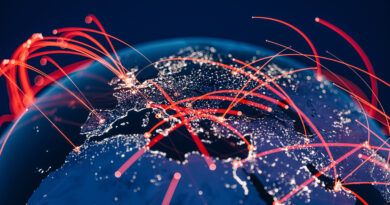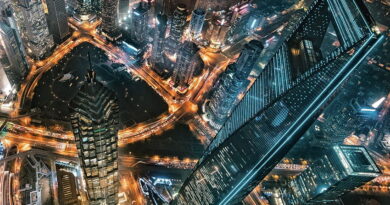How is Russia's economy doing after two years of war
The war in Ukraine has radically changed Russia's economy.
Not only because Moscow had to deal with the heavy sanctions imposed by the European Union, the United States and other partners of the Western bloc, but also because of the consequent restructuring of the country's diplomatic relations.
The Kremlin, no longer able to sell its energy resources to traditional customers of the Old Continent, has spent the last two years reorganizing its operational plans, looking for markets capable of replacing the revenues once deriving from the coffers of EU member governments.
This is how gas and oil from the Russian Federation found their way to Asia, where India and especially China are willing to make deals with Vladimir Putin.
And it is always like this that most of the large Western multinationals operating on Russian territory have been replaced by indigenous (or Chinese) brands.
In other words, Moscow's economy – contrary to the first dire predictions – has not yet collapsed under the blows of the West, but has actually reorganized itself, showing a rate of resilience not foreseen by analysts.
Russia's “new” economy Warning: what has just been said does not mean that Russia's economy is in great shape.
It just means that there has been, at least for the moment, no implosion.
Net of Putin's reassurances – to be taken with a pinch of salt, given that the current leader has recently run as a candidate for the next presidential elections scheduled for March – it is true that the combined sanctions-inflation-fluctuations in the ruble exchange rate it shook the foundations of Moscow, but it is equally true that the country has evidently resisted so far much better than expected.
The government continues to talk about a GDP growth of +2.8% for 2023.
An optimistic but still positive figure, just like the one highlighted by the International Monetary Fund which photographed a +1.5%.
On the contrary, the OECD has forecast a collapse in Russian GDP for the current year of -2.5%, while the World Bank of -0.2%.
The unemployment rate, according to official data, meanwhile fell to 3.1% in the summer, a record in the history of modern Russia.
However, the Russian newspaper Izvestia has turned the spotlight on the state of health of large Russian companies.
Well, their revenues, in the first half of the year, would have gone from 694 to 342 trillion rubles.
Specifically, Gazprom would have recorded a -36%, Rosneft -8%, Lukoil -12%, Inter RAO -43% and Akron -34%.
Moscow's measures Moscow's new economy is therefore an economy adapted to an almost permanent state of war.
An economy increasingly distant from Europe and close to Asian markets.
Russia, not surprisingly, has redirected its oil and gas exports from the EU to China and India.
But, claimed the Energy Minister and Deputy Prime Minister, Aleksandr Novak, there would be many countries that would like to purchase from Russia, in Latin America, Africa and the Asia-Pacific regions.
“Previously we supplied Europe with 40-50 percent of oil and oil derivatives.
This year, the figure is not expected to exceed 4-5 percent of total exports,” the senior official said.
The share of oil exports to China – at very different prices, it should be underlined – has however risen to 45-50 percent and India, which previously received almost nothing, "in the current situation has become our main partner" .
“In two years, the share of supplies to India has increased to around 40 percent,” the minister further underlined.
Russian earnings from oil and gas exports are expected to reach nearly $98 billion this year, a level comparable to 2021, before Ukraine's offensive.
Gas and oil revenues account for 27% of gross domestic product, and 57% of export earnings, Novak specified.
On the domestic front, however, Western brands that left Russia have been replaced by their indigenous versions.
American hamburger group McDonald's has given way to Vkusno & tochka, donut maker Krispy Kreme has been replaced by ersatz Krunchy Dream, while Stars Coffee has supplanted Starbucks.
Chinese cars and technological products have also captured considerable market shares.
While Russian brands are unlikely to nurse the Russian economy back to health, the Financial Times pointed out, they could at least ease pressure on the government, appeasing a population that has grown accustomed to the post-Soviet abundance of consumer goods at affordable prices.
This is no small thing for a country that was on the verge of imploding until a few months ago.
read also Russia grappling with "made in China".
A convergence that cannot work




